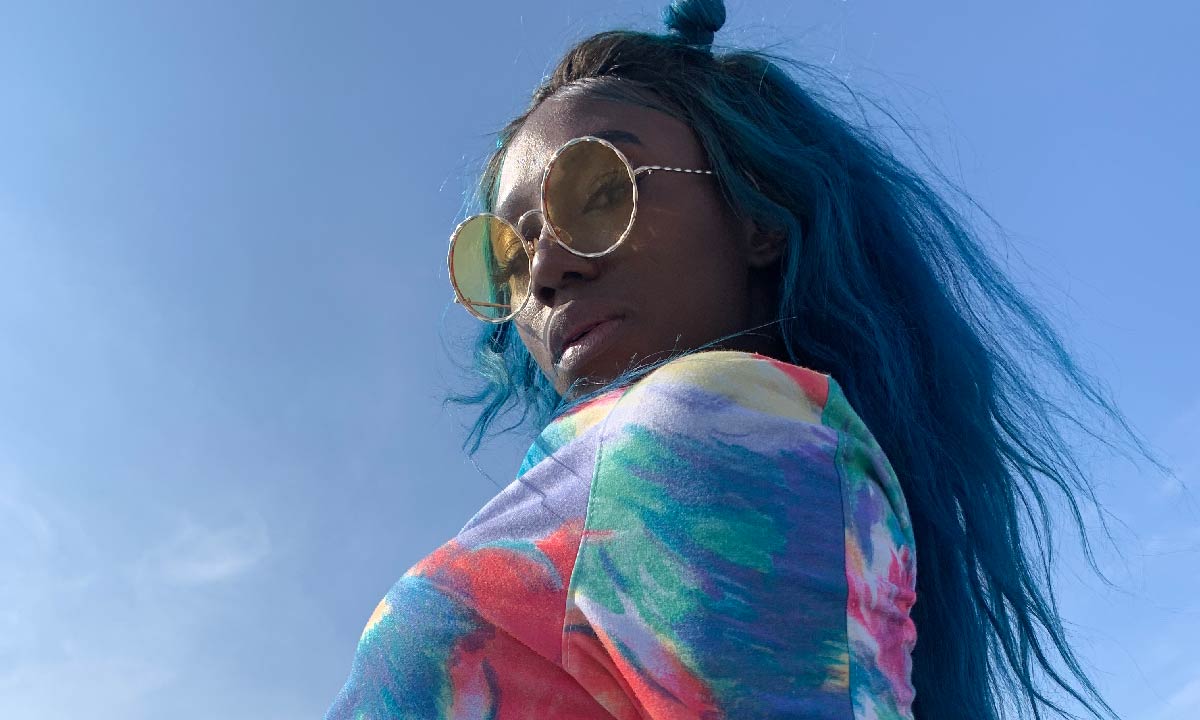For performing artists, breaking into the music industry can be an uncertain and challenging path. With the global pandemic disrupting the arts community in so many ways — from the cancellation of live events to the closure of clubs and theatres — emerging artists are being supported.
Domanique Grant, an emerging singer-songwriter, says her biggest challenge this year was figuring out how to connect with her fans by quickly learning the digital music landscape. Domanique recently shared her insights with fellow creatives as part of the RBC Emerging Artist Academy, presented by RBC Future Launch and the RBC Emerging Artist Project. The free, five-part virtual series integrates arts-focused resources, advice and talent development. Each episode showcases a diverse mix of industry experts, emerging artists, and tools to empower youth and creatives to continue learning and collaborating at a time when they need it the most.
Arts in the time of COVID
Episode 1 deals with the impacts artists are feeling during the pandemic, with actionable ideas emerging creatives can apply to help their artistic careers. Moderated by RBC’s Valerie Chort, Vice President, Corporate Citizenship and Sustainability, the episode includes panelists from the Toronto International Film Festival, Canada Council for the Arts and the National Arts Centre.
Episode 2 focuses on how artists can find grants, along with tools and guidance. Domanique Grant is a panelist in this episode and performer and was hosted by RBC’s Senior Curator Corrie Jackson. Upcoming episodes will focus on a variety of useful topics including branding and financial literacy and will feature notable experts from RBC and arts and entertainment organizations.
Domanique previously participated in the RBC Music Entrepreneurship program at Artscape and First Up with RBCxMusic — an initiative launched at the start of the pandemic which supports emerging Canadian recording artists across multiple genres through funding, promotional support, mentorship and networking opportunities.
Here Domanique shares virtually to talk about her music, her experience with the RBC Emerging Artist Academy and First Up with RBCxMusic, and more! Check out the interview below.
Q: How would you describe yourself as an artist?
Domanique: I would describe myself as a pop singer-songwriter and creator, who merges pop and R&B influences into my music.
Q: How has 2020 challenged you as an artist?
Domanique: I think 2020 has challenged me to figure out how I can add value to the world and my fans during our first global pandemic of this decade. The outcome of that has meant getting really clear on my artistic voice and learning more about how I can be of service to others.
It’s also really challenged me to spend more time with myself to become clearer on my goals, personal development and my mental health.
Q: What is something you wish you knew when entering the industry?
Domanique: I wish someone taught me that anything can be learned and that perseverance and re-framing our relationship with the word “no” as artists is one of the keys to finding success. When you enter the industry at an early age, it’s really intimidating because a lot of people make you think everyone else has the answers and that we are less capable than we think. Knowing now how the areas where I’ve found the most success in my career were areas I struggled with the most has really helped me have more faith in myself and process rejection differently.
The last thing I would add is how your health is your wealth, and it is so important for artists to develop a consistent mental and physical health practice to support our longevity. As success starts to increase more is required from you and in order to be able to show up consistently and at your best it starts with taking care of yourself.
Q: How did being a part of First Up with RBCxMusic affect you?
Domanique: First Up with RBCxMusic was an incredible experience. The opportunity meant a lot because it was also at the beginning of the pandemic when I was trying to figure out how to navigate the digital music landscape.
I think the First Up experience allowed me to realize my music had an important role to play at this point in history — when the world was at a standstill and the experiences of being a person of color were being elevated to the forefront of our day to day. To see the level of representation displayed in the artist selection and receiving support from RBC really helped me transition into feeling more comfortable creating digital content and performing online.
Check out Domanique's First Up with RBCxMusic performance on her Instagram IGTV.
Q: How does your initiative “CAF” hope to help young Canadians?
Domanique: CAF stands for “Call a Friend” and is an initiative presented by RBC Future Launch that follows a simple principle: If we don’t create equal access for all youth, then all youth won’t be equal.
I believe this has to start with young people in not-for-profit housing who are impacted by the career and mental health impacts of COVID-19 at disproportionate rates. On a normal day, young people can be inside for 15-24 hours per day. This issue is worsened by a lack of access to digital technology and professional tools that prevent young people from being able to fully participate in the shift to digital learning, programs and career advancing opportunities.
CAF increases access and connection for youth by helping them convert more than 20 hours of unproductive time into a revenue-generating artistic skill or passion. We do this by pairing youth with a mentor, funding sponsored professional lessons, providing weekly accountability calls, and offering technology, instruments and tools to help them overcome systemic barriers. CAF ensures that young people in communities with socio-economic barriers are not left behind as we move to a digital economy.
This is an initiative close to my heart because I didn’t always have access to the tools to participate on the same level as children without systemic barriers, and it would take me twice the amount of time just to get on the same playing field. This is prevalent in schools, artist training, development programs, and in the workforce. The first step we can all take is ensuring that young people all have access to the same tools to even out the playing field.
Learn more about Domanique's work and CAF.
This article is intended as general information only and is not to be relied upon as constituting legal, financial or other professional advice. A professional advisor should be consulted regarding your specific situation. Information presented is believed to be factual and up-to-date but we do not guarantee its accuracy and it should not be regarded as a complete analysis of the subjects discussed. All expressions of opinion reflect the judgment of the authors as of the date of publication and are subject to change. No endorsement of any third parties or their advice, opinions, information, products or services is expressly given or implied by Royal Bank of Canada or any of its affiliates.



















